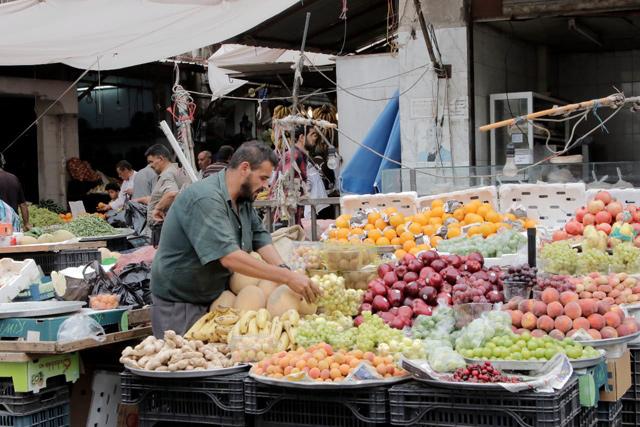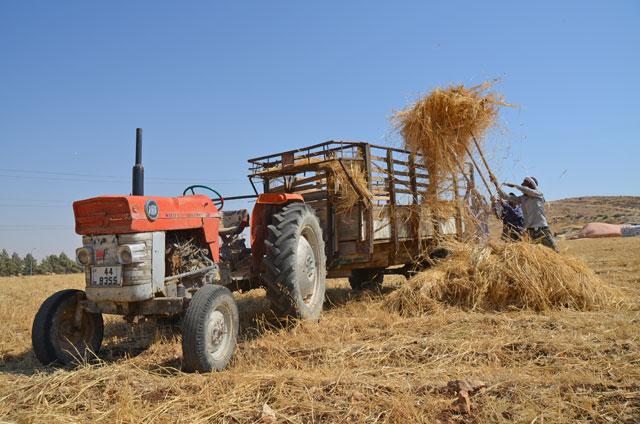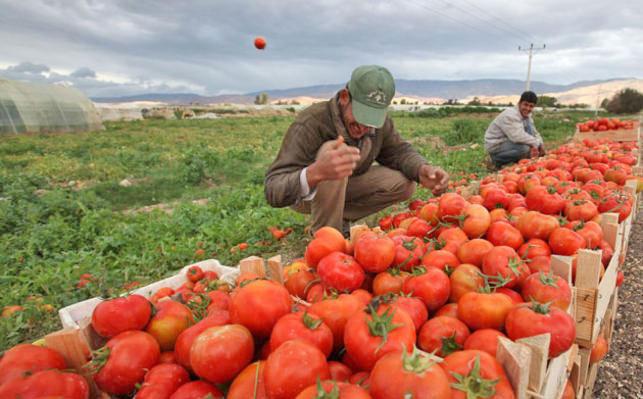You are here
Union: farmers ‘will not deliver fruit, vegetables and meat’ to markets today
By Hana Namrouqa - May 30,2018 - Last updated at May 30,2018

Amman’s central market will not receive fresh fruits and vegetables in protest of the new draft of the Income Tax Law (Photo by Osama Aqarbeh)
AMMAN — Jordan’s farmers today join professional associations’ nationwide strike, by stopping the supply of produce, meat and poultry to the local markets, the Jordan Farmers Union (JFU) said.
The central markets of fruits and vegetables in Amman and other governorates will not receive trucks laden with fruits and vegetables, while butcheries and superstores will not be supplied with fresh meat and poultry, as farmers strike against the new Income Tax Law, JFU Director General Mahmoud Oran said on Tuesday.
The Kingdom’s professional associations will go on strike to protest the law following a call by the Professional Associations Council on Saturday.
Agricultural associations, unions and societies unanimously rejected the proposed new version of the Income Tax Law, and warned earlier this month that the sector will take escalatory measures if the law in its proposed version is endorsed.
Sector leaders denounced taxing the agriculture sector under the new version of the law, which indicates that the farmers will have to pay taxes to the government whether they make profits or losses, highlighting that the new draft law did not identify limitations on losses or profits for the agriculture sector.
“Consumers will have to bear with us as we protest against this unjust new law,” Oran told The Jordan Times, stressing that the government has been passing a set of new laws and regulations over the past two years that “ultimately seek to eliminate the agricultural sector; both cultivation and animal production as the government is obeying the instructions of donor agencies”.
The agriculture sector has been in a wreck since the Syrian crisis started in 2011, when the country lost its main portal to the European markets, Oran said, adding that the government in 2016 stopped the recruitment of new guest workers and raised their fees from JD120 to JD500.
“Earlier this year, the government taxed the agricultural production’s inputs and, now, it is planning to tax farmers who not only have no income, but most of whom are also referred to the judiciary for prosecution for being unable to pay their debts,” Oran claimed, highlighting “time after time, the government takes unilateral decisions that affect the core of the sector without consulting with sector representatives or even taking into consideration agro-economics.”
The government stressed that the draft law aims to realise “social justice and equality” and imposes deterrent penalties on perpetrators of tax evasion. It said that the law, which broadens the taxpayers’ base, is a “corrective piece of legislation” that would realise tax justice, fight evasion and apply the principle of vertical equity of tax payment.
But research on the draft income tax law carried out by the Centre for Strategic Studies at the University of Jordan and released earlier this week, said that the proposed new version of the Income Tax Law needs to be accompanied by a reduction in the sales tax.
The research detailed several recommendations and alternatives, including that the agriculture sector must remain exempted as is in the current law.
Related Articles
AMMAN — The government seems to be fighting an unexpectedly fierce battle to defend the income tax bill, after sector leaders joined forces
AMMAN — Agricultural associations, unions and societies unanimously rejected the proposed new version of the income tax law, sector represen
AMMAN — Representatives of the agriculture sector on Tuesday applauded the government’s decision to exempt agricultural production inputs fr













